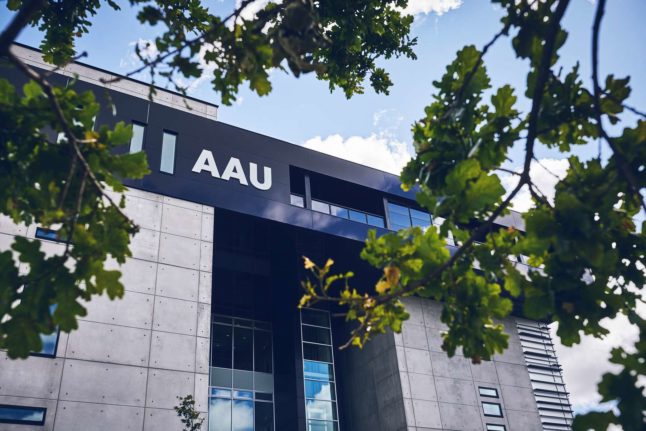The ‘quota 2’ or kvote 2 applications round at Denmark’s professional colleges (professionsuddannelser) and universities was completed at the end of last week.
Application numbers were released, giving an idea of the demand for these types of qualifications.
While some institutions said they experienced a demand for English-taught or international study places, the higher education minister, Christina Egelund, said an overall fall in the number of welfare applications was concerning.
University colleges, sometimes referred to in Danish as professionshøjskoler, are the educational institutions which offer study programmes in profession-focused degrees such as nursing or social work.
Quota 2 or kvote-2 applications are applications which are assessed on the individual merits and experience of the applicant, and not solely on exam grades from upper secondary school or gymnasium.
Around 30 percent of intake at Danish higher education comes from the quota 2 system.
One university college, VIA Horsens, said in a press statement that it had received 755 quota 2 applications, a similar number to 2023, but that the application figures had revealed “yet again” a high demand for English-language spots on the college’s engineering programmes.
“The total [number of applications] is dominated by the figure for the number of applicants to the popular English-language programme in Software Technology Engineering – here, as many as 250 hopeful applicants have applied for the course as their first priority,” VIA Horsens said.
There are only 60 places available on the engineering course.
Another course taught in English, Climate and Supply Engineering, received 40 applications for 15 places.
These numbers demonstrate “how much of a challenge it is for us to be politically required to cut several hundred English-language study places on engineering programmes in Horsens which have otherwise attracted both Danish and international students,” VIA’s vice rector Gitte Sommer Harrits said in the statement.
READ ALSO: English-language programmes at Danish universities face cuts
“Cutting English-language places means that this year we again have to turn away a large number of qualified applicants even though we could train them for industries that are crying out for labour,” she added.
VIA, along with over 100 companies and business organisations, has called for 175 English-language places in Horsens to be reopened, the college said in the statement.
Aalborg University said that a new international business degree programme had meanwhile attracted a large number of applicants from abroad.
In a press statement, Aalborg University said that its new undergraduate degree, Economics and Business Administration, which begins in September, had received just under 500 applications from 59 different nationalities.
Demand for the programme has thereby already exceeded the number of available places, the university said.
“We are proud that we at Aalborg University can offer a study programme that is relevant to so many people from all over the world. This confirms what we already knew: That we are an international university with world-class study programmes,” vice rector Anne Marie Kanstrup said in the statement.
The Aalborg programme has been established in response to a more recent government reform – which came two years after the 2021 decision to cut English-taught places at institutions like VIA Horsens.
Last year, the government announced in a broader reform of university degrees that the number of degrees taught in English would be expanded.
READ ALSO: Denmark to boost English-language university places in education reform
“We know that international students are talented and beneficial to the Danish economy, especially if they stay in the country afterwards. I am sure it will rub off on our Danish students when they meet fellow students from other cultures, just as the international students will of course also be integrated as an important part of Danish society. It is a great asset for everyone,” Kanstrup said in the statement.
The Minister of Higher Education and Research, Christina Egelund, said in comments to newswire Ritzau that education authorities faced a “huge” task in reigniting interest in welfare-related qualifications, after another year in which applications to courses in the sector fell.
Denmark is already seeing a shortage of labour in the welfare and health sectors, with talks underway to recruit foreign labour to help address this. There have also been calls for better recruitment for the sector from within Denmark.
Within the four major welfare-related professional courses, the number of applicants fell by five percent overall.
Childcare (pædagog) programmes saw a drop of 13 percent in quota 2 applicant numbers, 7 percent less applied for social worker courses compared to 2023.
However, four percent more people applied for nursing compared to last year.
“I am fully focused on preparing thorough reform proposal which will crack the codes [to reverse the trend, ed.],” Egelund said.
“It’s obvious that we can’t just stand by and watch as applications for these courses decline,” she said.
The association for professional colleges, Danske Professionshøjskoler, said a “new reality” was called for after the disappointing application numbers.
There is “acute need for an ambitious reform,” chairperson Camilla Wang said in a statement.
STEM (science, technology, engineering, and mathematics) subjects saw a 12 percent increase in applications, national quota 2 figures showed.



 Please whitelist us to continue reading.
Please whitelist us to continue reading.
Member comments